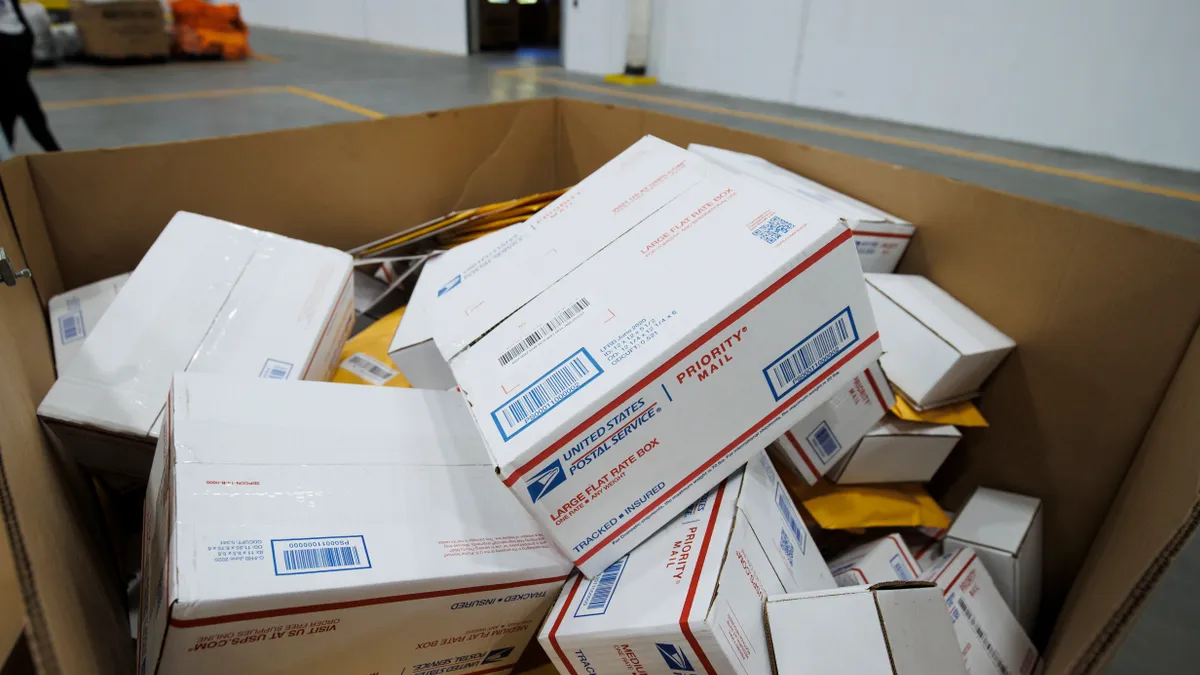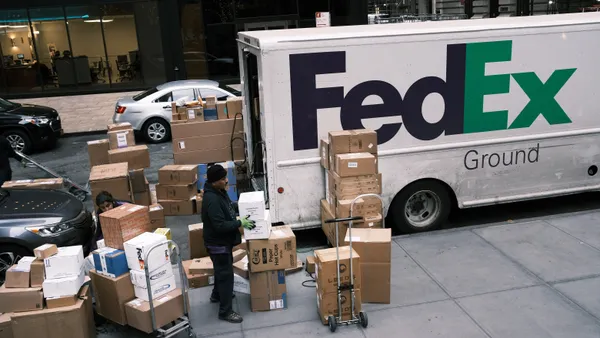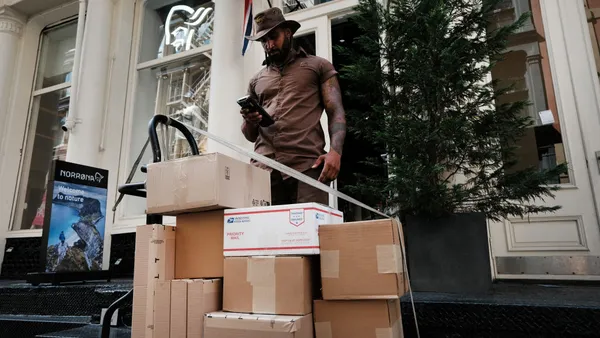The U.S. Postal Service has lifted its brief suspension of international inbound packages from China and Hong Kong's postal systems, according to an announcement Wednesday.
"The USPS and Customs and Border Protection are working closely together to implement an efficient collection mechanism for the new China tariffs to ensure the least disruption to package delivery," the Postal Service said.
The suspension took effect Tuesday and came shortly after the de minimis exemption was axed for China imports as part of Trump's tariff actions. The exemption allows packages below $800 to enter the U.S. duty free and has helped fuel growth in cross-border e-commerce volume.
The Postal Service's short-lived suspension added uncertainty for shippers attempting to adjust their supply chains in the wake of tariff exchanges between the U.S. and China.
How much a prolonged suspension would have upended cross-border e-commerce activity is unclear, as many companies shipping low-cost goods internationally don't lean on the Postal Service until the final leg of delivery. Merchandise imported by mail is excluded from the Entry Type 86 Test, per a recent CBP rule proposal. The Entry Type 86 program was used for more than 69% of de minimis shipments in CBP's 2024 fiscal year.
A pause wouldn't impact direct injection shipping methods used by major e-commerce platforms like Shein and Temu, according to Izzy Rosenzweig, CEO of Portless, which helps companies utilize a Shein or Temu-like shipping model via direct flights to fulfillment centers.
"In the direct injection model, the packages are not handed over to USPS until the goods have been fully cleared at local facilities and delivered locally in the US," he said in a LinkedIn post. "The international mail system is not used at all; it is essentially a local USPS drop-off."
The Postal Service's international volume, which includes agreements with foreign postal administrations, fell 10% year over year in fiscal year 2024 "due to various competitive pricing, political, and economic factors," according to the agency's 10-K.















